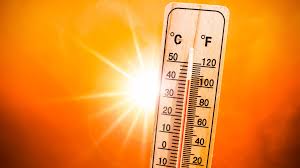Human-induced climate change has led to a significant rise in heatwave-related deaths, with urban populations facing the highest risks, according to research published on Tuesday.
Two separate studies conducted by researchers from the University of Queensland (UQ) examined the impact of heatwaves on mortality in Australia, as reported by Xinhua news agency.
The first study, a collaboration between UQ and The Australian National University (ANU), analyzed mortality rates during the devastating 2009 heatwave that struck southeastern Australia. It also reviewed decades of heatwave data to assess the long-term effects of climate change on heat-related deaths.
During the 2009 heatwave, Melbourne recorded its highest-ever temperature of 46.4 degrees Celsius, while parts of Victoria endured 12 consecutive days of temperatures exceeding 40 degrees Celsius. The research estimated that Victoria experienced 374 excess deaths during the five-day peak of the extreme weather event.
Findings from the study suggest that climate change increased the mortality rate during the heatwave by 20 percent.
The second study focused on two decades of data to identify which areas in Australia are most vulnerable to heatwaves. It found that urban residents with low income, limited education, diabetes, and restricted access to healthcare services were at the greatest risk of heat-related fatalities.
Patrick Amoatey, a UQ doctoral candidate and co-author of the study, noted that cities are more vulnerable due to the abundance of heat-absorbing surfaces such as roads, buildings, and railway lines.
“Our results suggest heatwaves with associated periods of higher mortality will occur more often than they did in the past,” said Nicholas Osborne from UQ’s School of Public Health.
He emphasized that these findings could help communities better prepare for future extreme heat events.
Heatwaves are known to pose multiple risks beyond mortality, including drought, reduced water quality, wildfires and smoke pollution, power shortages, and agricultural losses.
Disclaimer: This article is based on recent research and expert analysis. While efforts have been made to ensure accuracy, readers should consult relevant authorities and scientific sources for further information on climate change and its health impacts.












